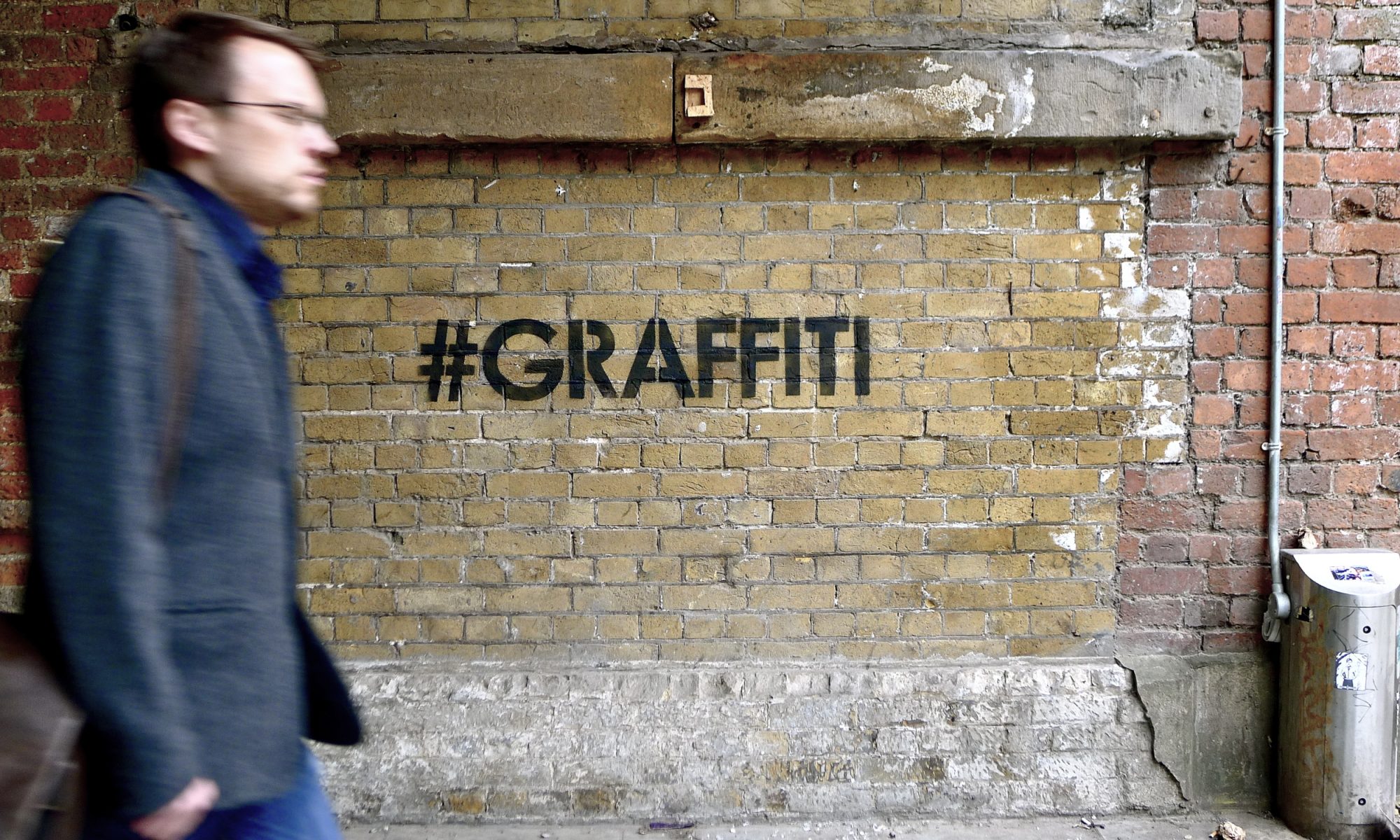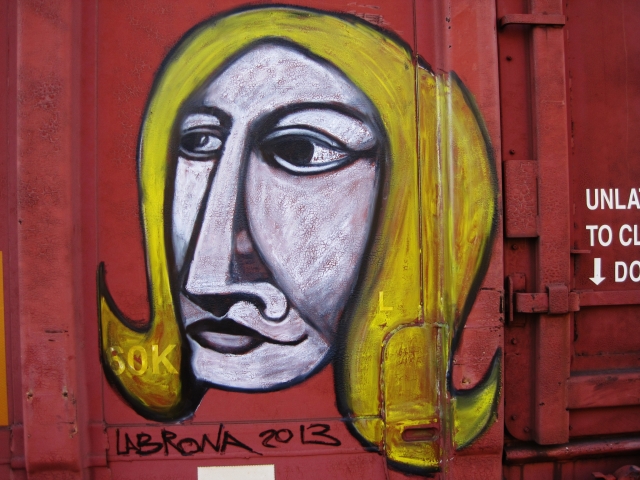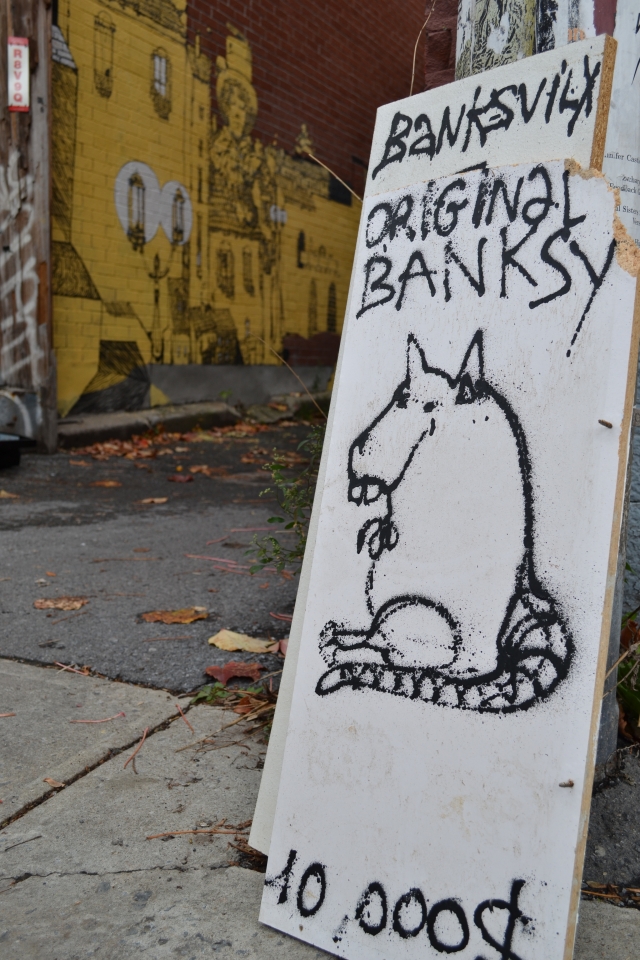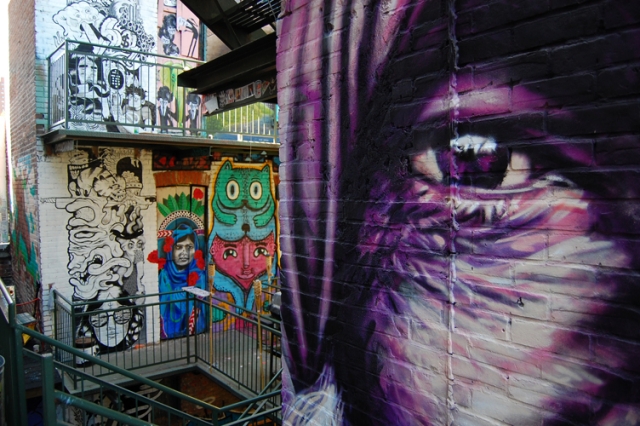
Over the summer, TurtleCaps, an artist originally from Queen, New York but now based in Montreal, organized a massive transformation of an abandoned building in the center of Montreal. “Cabane à Sucre” (“sugar shack”) was an open-air street art gallery. At the beginning, the goal was to produce something that would be set apart from other street art events in Montreal but inspired by (as at hinted in the title of the project) Hanksy’s “Surplus Candy”. Originally, the project was meant to be low-key. It was done in a private courtyard without permission. Midway thru, TurtleCaps realized that the project was the perfect platform to give visibility to some artists that get shut out of galleries and festivals because, “they are not considered cool or famous enough.”
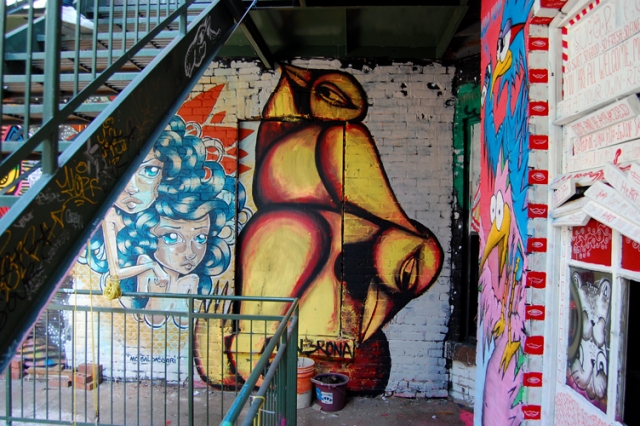
In mid-August he called his close friends up and invited them to paint a dilapidated building hidden in the heart of the city, just for fun. As rumors of the project spread, more and more artists stopped by to join in. According to TurtleCaps, “It was incredible. Credit goes to everyone who took time and money out of their busy schedules to bring this building back to life before its inevitable demise to gentrification.”
That’s how 45 street artists and graffiti writers, but also illustrators and fine artists, collaborated over a 12 days span… doing their art in a 3 level courtyard. “I’ve made some good friends in Montreal, so a cool part of this is throwing these multiple artists that may not know each other, into the same space. To have a fine art painter rocking a wall next to a street bomber and they’re both having a good time, well that’s what it’s all about.”
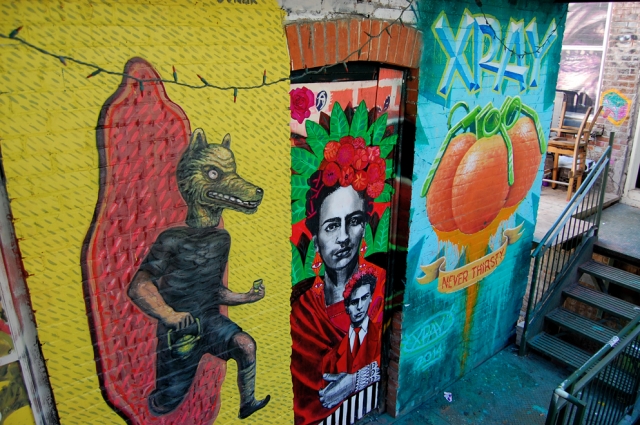
Of course this is not the first time artists have taken over an abandoned building. The difference here is that TurtleCaps brought in a variety of artists, some that have nothing to do with street art and were painting on walls for the first time. Whether you paint full buildings, are famous in LA or known in Europe, if your work was lacking passion, the “unknown” artist right next was going to show you up. All-stars, ego nor press meant anything for those 12 days in the courtyard. It was just about the art, not fame or money, and that may be why it was such a success.
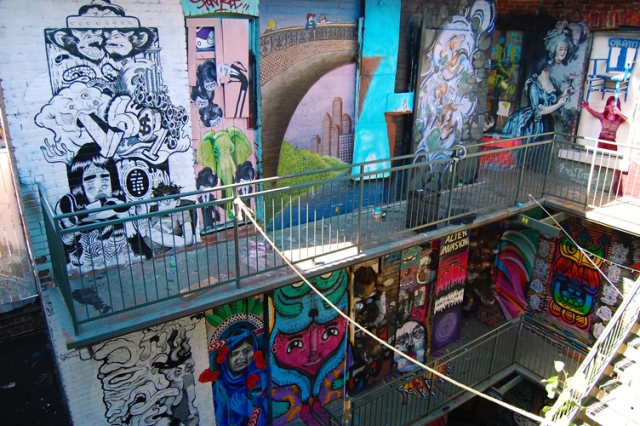
When I asked Jason Botkin about “Cabane à sucre”, he said, “I consider it a very special project. Its impact on Montreal’s underground art community (including a vastly diverse pool of voices) may not be understood for some time yet to come. I love how it’s drawn so many together, in a very personal and somewhat private way. Above all, I’m impressed by the efforts of TurtleCap to make this an amazing experience for all involved, in a spirit of extreme generosity and inclusiveness. I’m very touch and inspired by this project that he so clearly poured his heart into!”
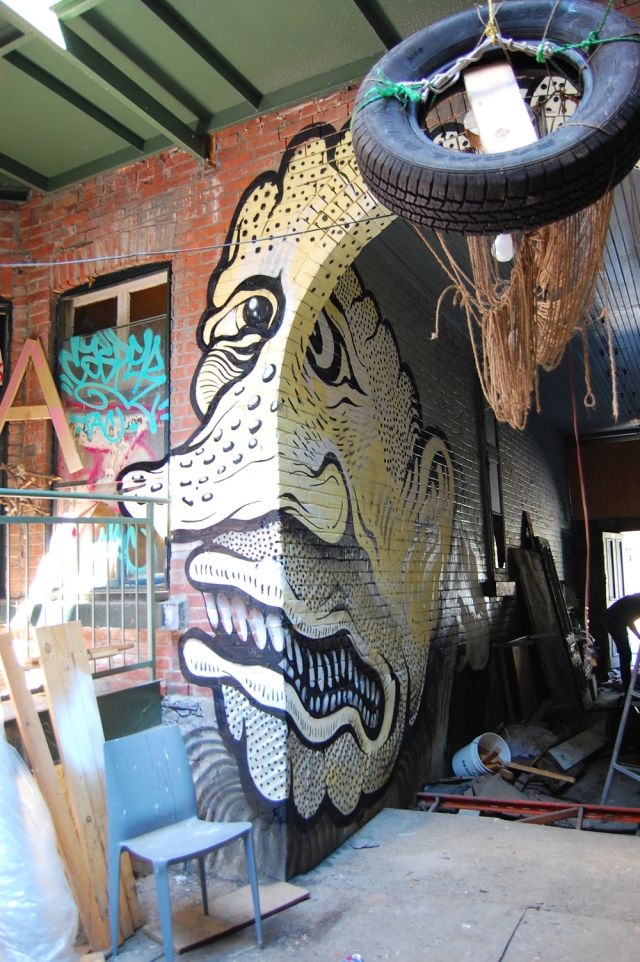
According to Kevin Ledo, “Cabane à Sucre was a great excuse for me to jam in the same space as a whole bunch of amazing Montreal artists, doing their stuff without restriction. Graff writers, street artists, illustrators, and fine artists, side by side, the result is glorious!”
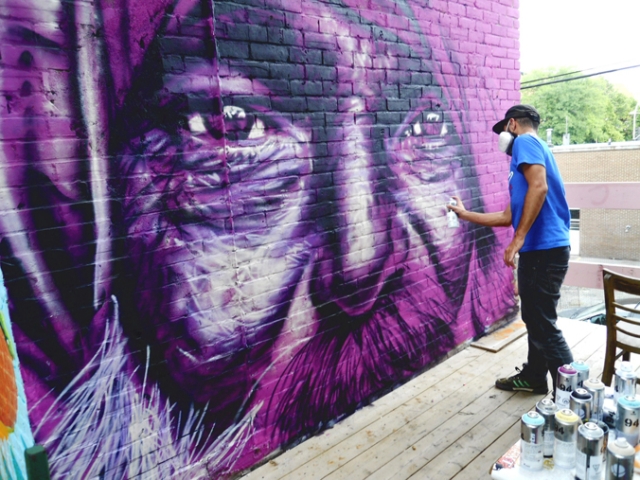
For Laurence Vallières, “TurtleCaps’ Cabane à Sucre is a group of friends who came together to talk, eat, drink a beer and paint! I ended up there by chance, one evening of ultimate creation. I borrowed a brush and some colors and set to work. I met new people and shared my artistic visions. Some were painting on a wall for the first time. TurtleCaps chose the artists based on his friendship more than his artistic tastes, and the result is impressive. There is nothing more communal and underground than that.”
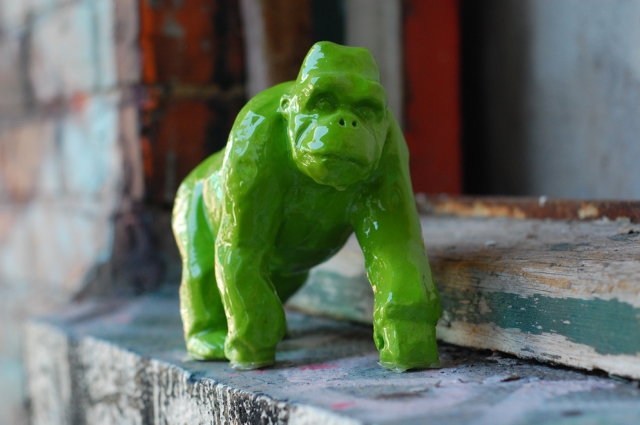
Alex Produkt shares the same feeling. “It was a fun opportunity to paint in a cool hidden courtyard and hang out with a bunch of other Montreal street artists in close quarters, drinking, eating, painting, laughing together.”
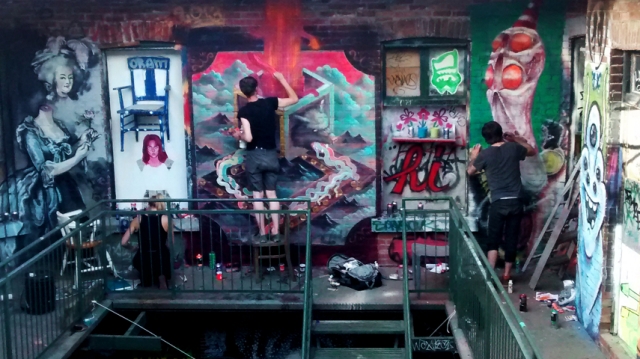
Lilyluciole has a very personal vision and interesting analysis on the project. “I agree with the approach of TurtleCaps and I think some of the press has misunderstood it. Highlighting the exclusive featured works by announcing that you will never see this show was bad information from some journalists. Instead, we must speak of the desire of the organizer to create a unitary project. I wanted to join this idea. I think it was generous to offer this possibility of collaboration to artists who do not often or never get to meet. There were graffiti, street artists, sticker addicts and even artists who have never painted outside. This attitude goes against the trend of some Montreal’s people who create divisions such as those between graffiti and street artists. That makes no sense. In fact, I think it’s totally out as this art expression does not require contempt or violence. I hope other initiatives such as this one will continue to emerge in various forms.”
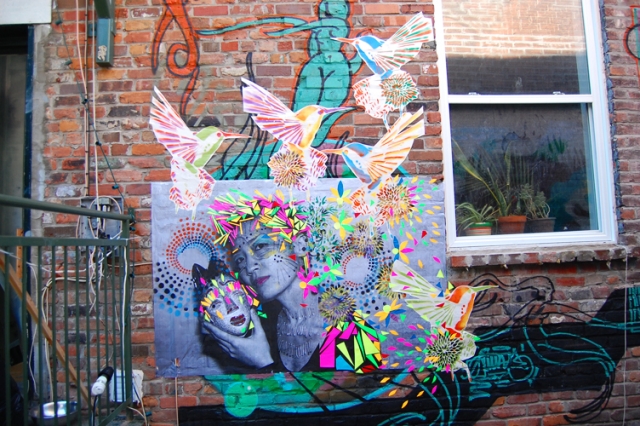
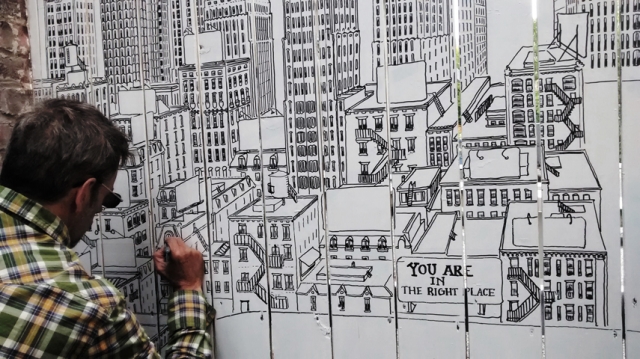
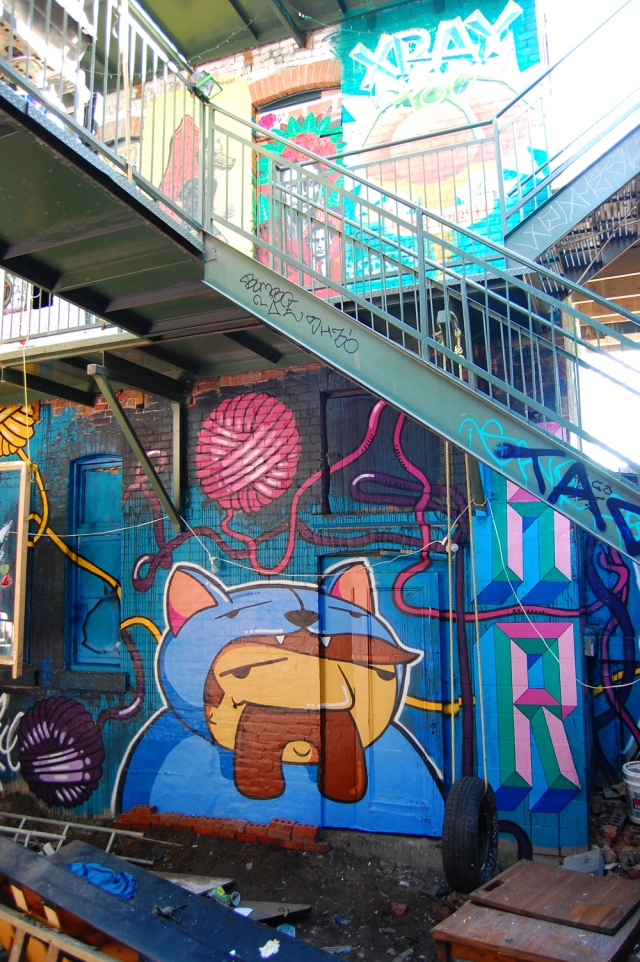
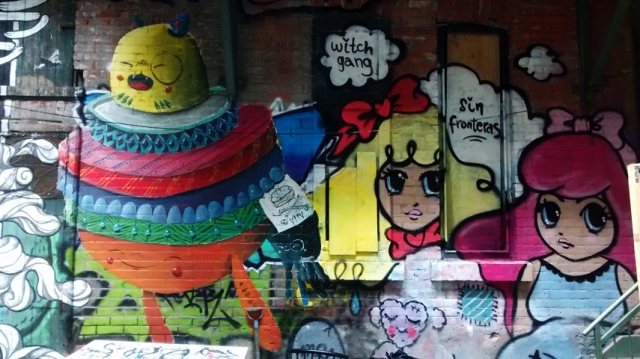
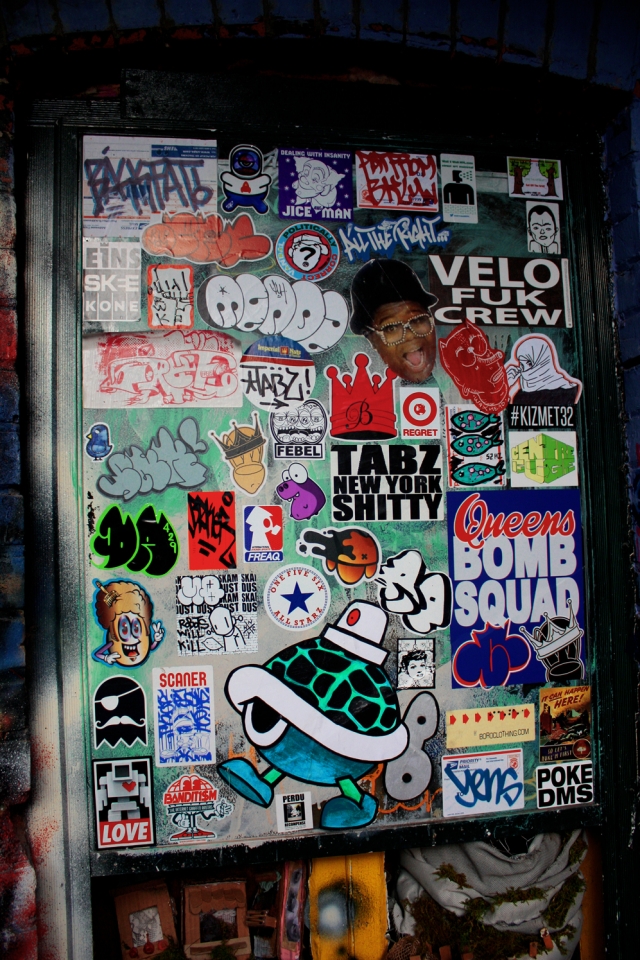
Artists involved: Adida Fallen Angel, Alex Produkt, Alysha Farling, Andy Dass, Anna Van Stuijvenberg, Antoine Tava, Axe Lamine, Bonar, Citizen, EtherTFB, FiftyTwoHZ, Futur Lasor Now, Fred Caron, Grazyna Adamska-Jarecka, HoarKor, Homsik, IAmBatman, Il Flatcha, Jason Botkin, Jonathan Himsworth, Kevin Ledo, Kizmet, Labrona, Laurence Vallières, Lilyluciole, Lina Kretzschmar, MAbstrakt, Mc Baldassari, MissMe, Ms. Teri, Okies, Pascale Lamoureux-Miron, Philippe Mastrocola, Stela, TurtleCaps, Tyler Rauman, Valerie Bastille, WaxHead, X-Ray, and EnMasse featuring Cheryl Voisine, Cyndie Belhumeur, Jeremy Shantz, Julien Deragon, Laurence Sabourin and Raphaël Bard.
See more photos here, and here.
Photos by TurtleCaps and Adida Fallen Angel
